Finally signing up for that bucket list trek? Here are 7 things to consider before choosing an adventure travel company
Adventure travel takes you into dangerous places – you need to make sure you’re in safe and responsible hands
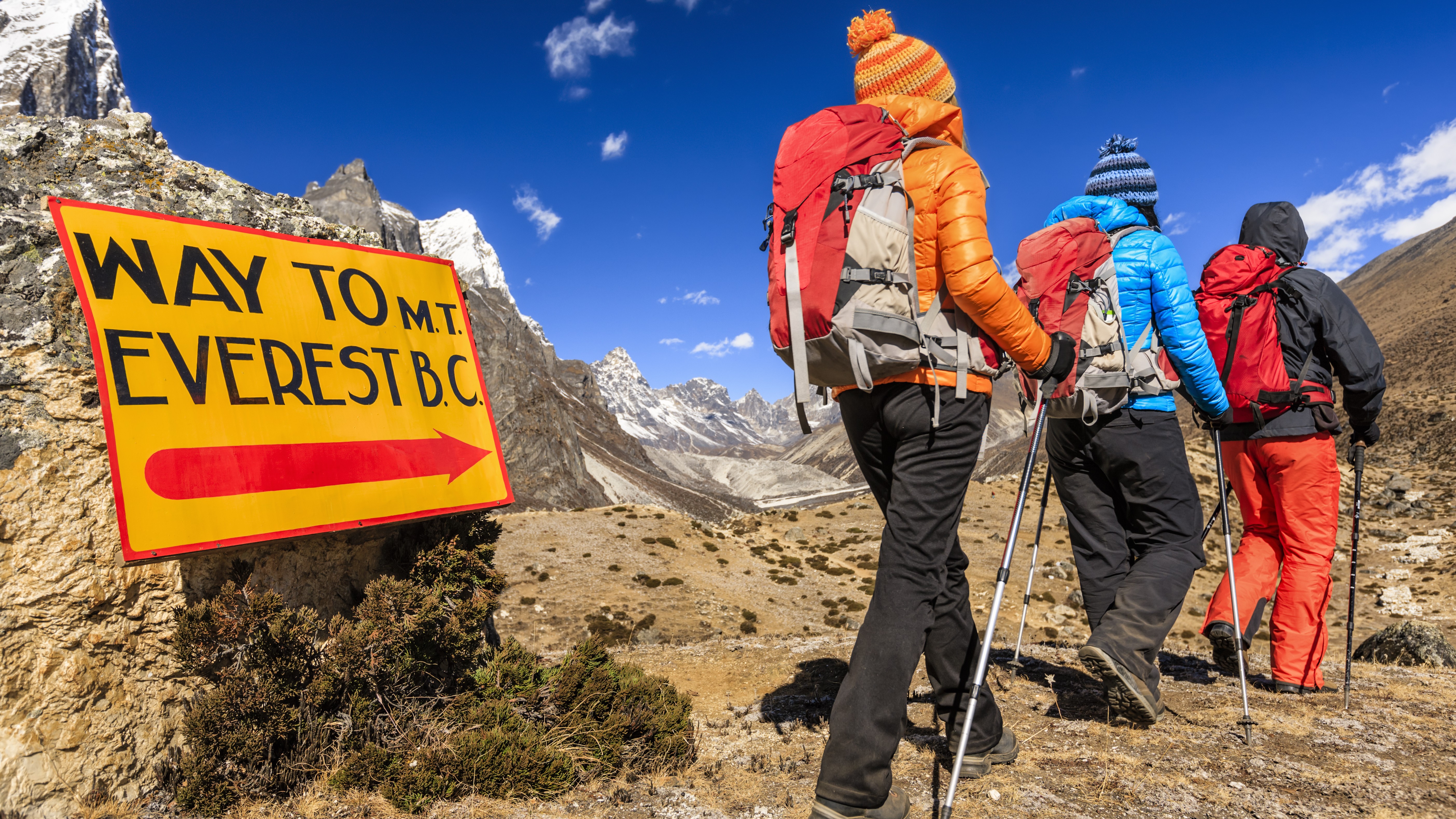
You only need to open Instagram to know that adventure travel is in its heyday. Your feed is probably filled with images of friends discovering distant peaks, rafting white water, or cross-country skiing under the Northern Lights. By some estimates, adventure travel generates more than $400 billion a year, and that figure is projected to nearly triple by 2030.
“There’s been a big shift in people wanting to experience things, as opposed to just lying on a beach,” says Rhys David, CEO of EverTrek.
EverTrek is a Welsh company that takes people on treks all over the globe, from Kilimanjaro to Machu Picchu, and earlier this year, I joined them on their marquee adventure to Everest Base Camp. Many iconic trekking destinations like Base Camp now require a licensed guide, but that’s not the only reason to go with an organized tour: mountains, jungles and oceans hold plenty of potential dangers within their beauty, and a guide can help you minimize and manage the risks.
But go online and search for an adventure travel guide, and you’ll find the internet is awash with companies offering their services, from premium-priced luxury outfits that promise to tend to every detail, through to budget operators that will get you from A to B without breaking the bank, but leave you with a lot of improvisation to do.
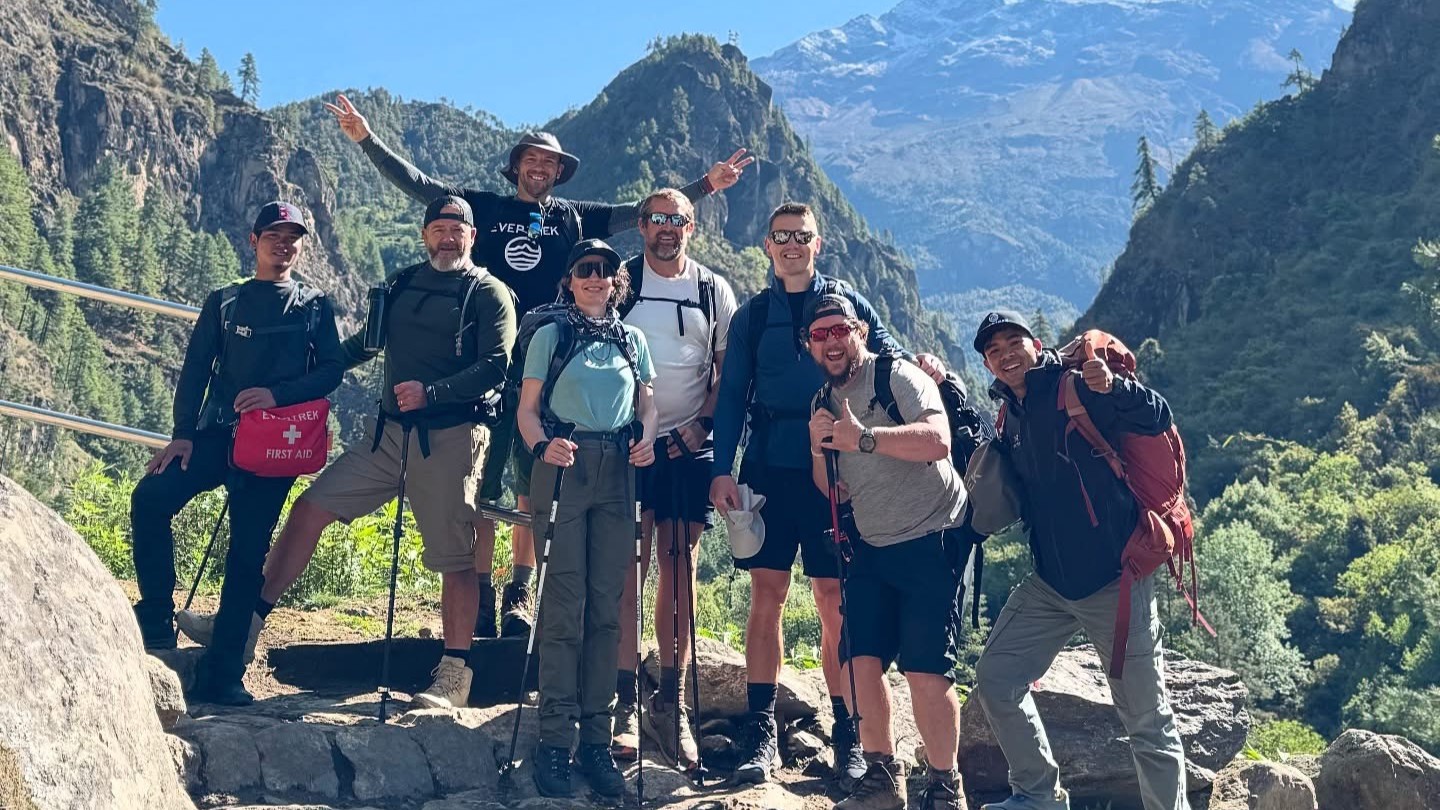
Over the course of my 11-day adventure in the Himalayas, I witnessed the entire range of experiences on offer, from miserable-looking trekkers slogging it up the mountain carrying all their gear and struggling to communicate with their guide, through to high flyers catching helicopters from viewpoint to viewpoint. It gave me a lot to think about regarding what to look for – and what to sidestep – when it comes to choosing an adventure travel company.
Trust
When you’re searching for a company that’s going to take you into wild spaces, you need to really trust them, so take some time to get to know who’s behind any outfit you’re seriously considering using.
EverTrek was founded by Andy Moore after his first trek to Everest Base Camp, just after the 2015 earthquake. He left Nepal with a desire to support the people he’d encountered and to help more people like him discover the Khumbu region. I could tell straight away he has a real passion for the adventure his company is founded on.
All the latest inspiration, tips and guides to help you plan your next Advnture!
“You genuinely want to connect with a company, and trust is the biggest thing in travel because you go into these mountains and they’re dangerous places and you want to know that you’re going to be okay,” says Moore.
When you’re looking at a company’s website and social media accounts, consider whether it looks professional or is full of spelling mistakes and broken links. Are they simply a broker that will take your fee and then hand you over to a local outfit, or will they hold your hand every step of the way?
And – needless to say (but I’ll say it anyway) – read the reviews.
Price
Once you’ve found a company you like the look of, the first thing you’re going to check is how much they charge. Prices for a single destination can vary wildly: I checked out the top five search results for Everest Base Camp and learned that pricing ranges from $1,100 to $6,500.
If a company is out of your price range, you’re going to need to look elsewhere, but if there’s one piece of advice I can give above all else, it’s don’t give in to the temptation to cut too many corners.
EverTrek charges around US$3,300 (£2,300) for the Base Camp trek. You buy your flight to Kathmandu and secure your visa and insurance, and from the moment you arrive until you leave, that covers just about everything else. It’s not cheap, but it meant that we had two guides for our group of five, and porters carrying our duffel bags.
“I think you’ll see a difference by having a sizable team around you. It takes all the stress away, so all you have to think about is putting your rucksack on and getting out there in the morning,” says David.
There are cheaper ways to do it, but it’s important to consider that the more you slash your budget, the more you’re likely to be sacrificing, whether that’s safety, comfort, or ethics. And don’t forget that if your trip has an attractive price tag but includes less, you may end up paying double in the end by the time you’ve covered other costs yourself.
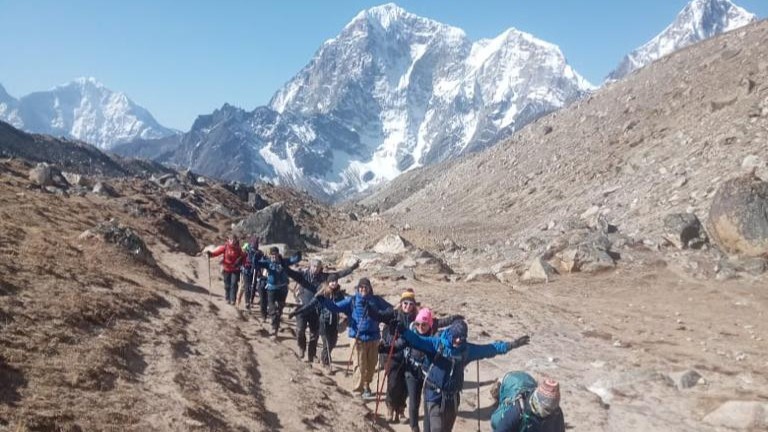
Communication
When I ask David how you know whether a company is the right choice, he has a simple answer: "Pick up the phone."
Any reputable company will have multiple ways for you to contact them, and it's reasonable to expect a human on the end of the line who can answer all your questions, no matter how small.
“A good company will be able to talk with great confidence about the route you’re likely to go on, the accommodation itself and the food you’ll be presented with,” says David, who joined us on the trek, just months after taking on his role, exactly so he could get this intimate level of knowledge of his company's offering.
“Don’t rush into it. When things are going well, it’s all fine. It’s when things go wrong that the quality of the business really stands out.”
Once you’ve chosen a company, it’s also reasonable to expect ongoing communication to help prepare you for the trip. Most people sign up for a trek to Base Camp at least 12 months in advance, according to David, and during the window between sign up and take off, they receive weekly emails with tips and invites to monthly online webinars where they can ask questions. This is all optional, but it means that you won’t be left in the dark about any aspect of your trip (unless you want to be).
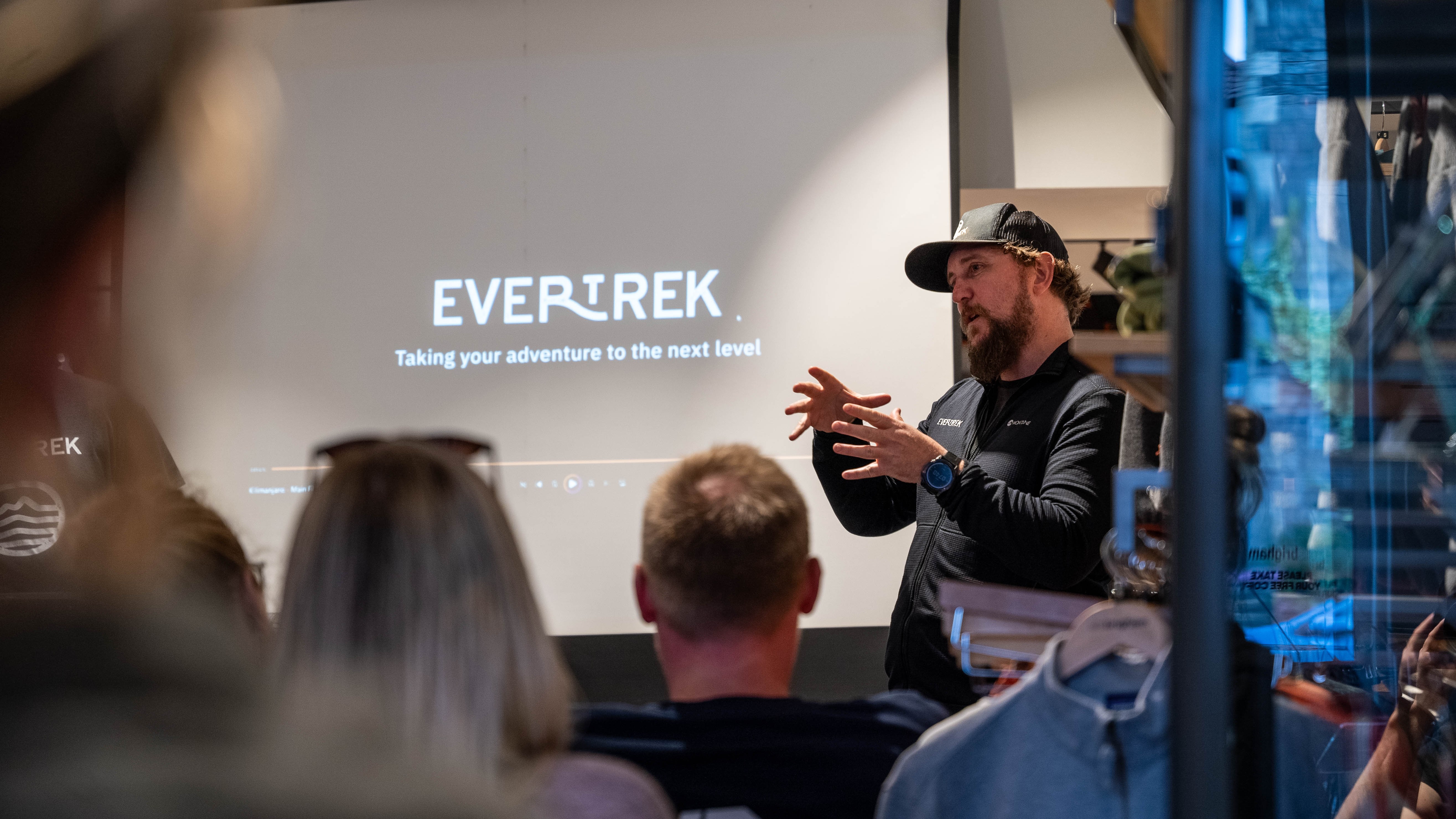
Safety
No matter whether your chosen adventure involves hiking boots or ice axes, it’s going to carry some inherent risk: extreme weather, high altitude, sprained ankles, the list goes on.
“If you go on a challenge like this and you are pushing yourself out of your boundaries, there are going to be difficulties, and that’s really what makes it an adventure,” says Moore.
But there are always things you can do to reduce your risk. Make some enquiries and find out whether your guides have the appropriate training and equipment to handle emergencies. Does every guide carry a first aid kit with basic medications? Do they have access to a satellite communicator to signal for help in the backcountry?
“It’s when things are going wrong that you want to be with a company that prioritizes safety,” says David.
And safety, unfortunately, does cost money.
“In retrospect, if things go wrong, if you could have spent $500 more to ensure your safety, you would.”
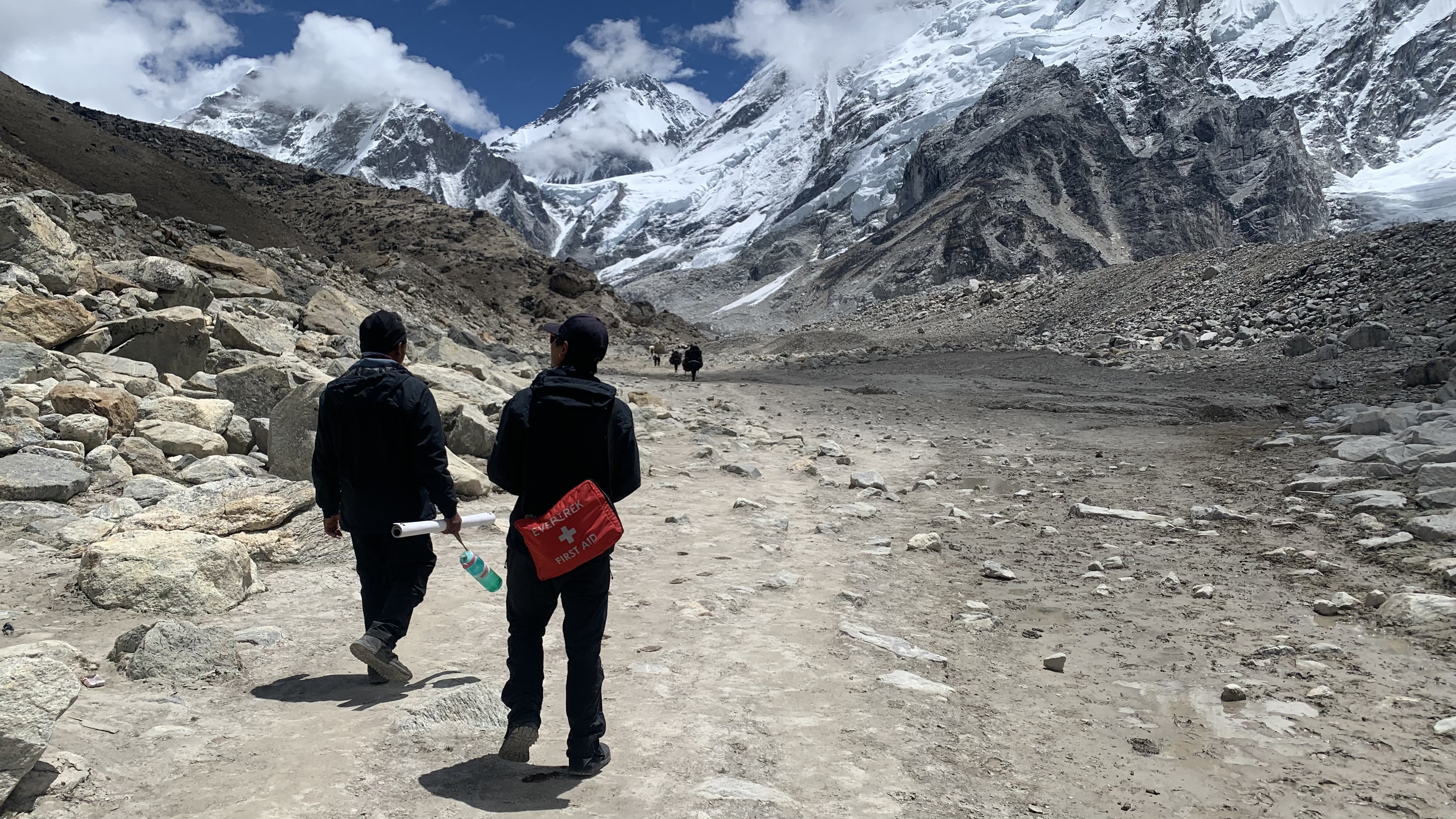
Preparation
If you want a beach holiday, you can essentially click your computer mouse a couple of times, and before you know, you’ll be at the beach. If you want to trek to the roof of the world or deep into the jungle, you’re going to need to do a lot more planning, even with a guide at the helm.
If you’re paying a little more, a lot of details should be handled by the company, but make sure that your guides provide you with thorough kit lists so you know what gear you need. You will need to be specific about what size backpack you require and whether it's necessary to bring your own water filter, for example.
Another crucial point here is that you must get travel insurance that covers the type of activities you’ll be doing, and a good travel company should be able to give you several recommendations for trusted options.
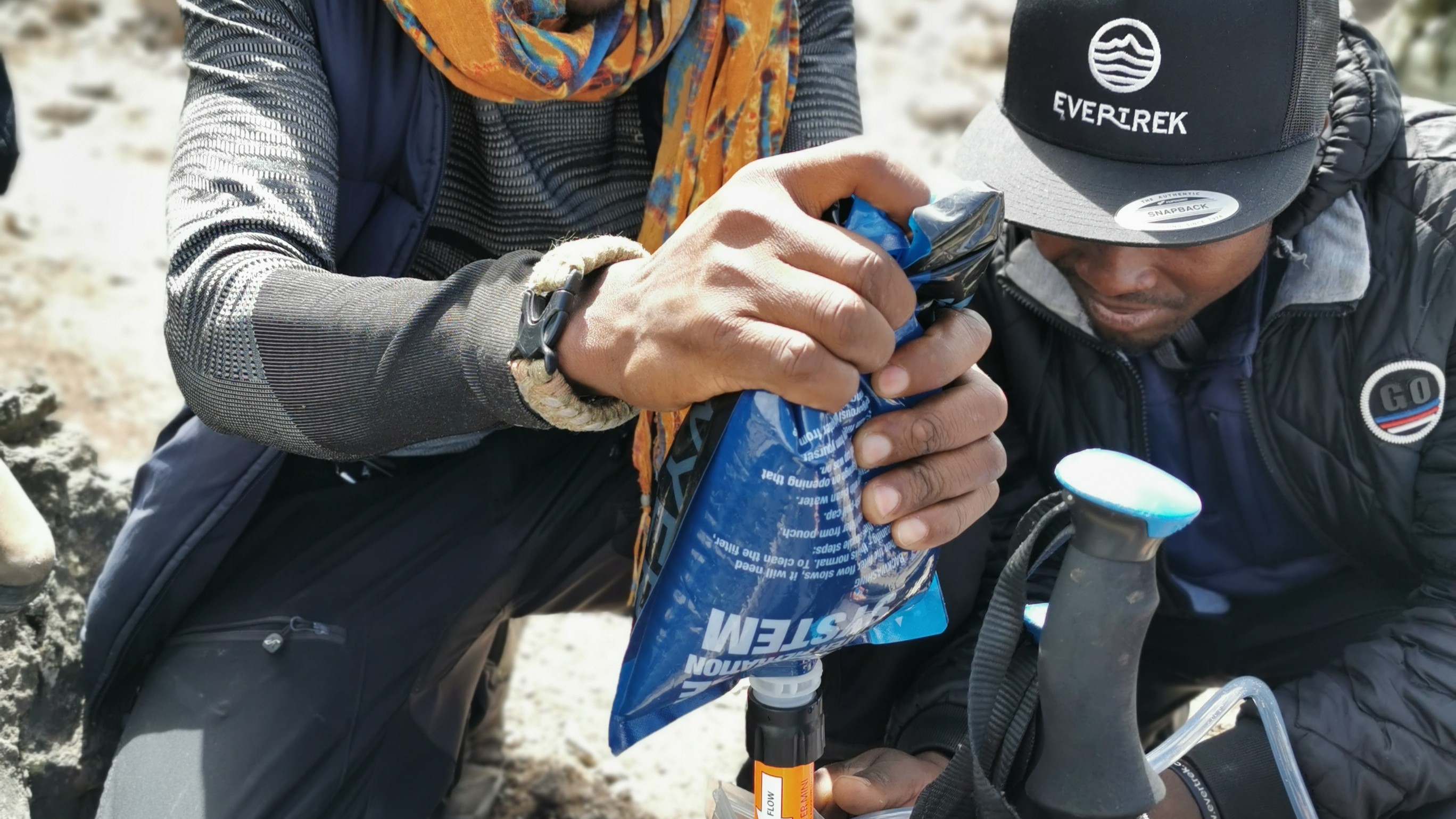
Sustainability
On this warming planet, we need to be thinking hard about the impact our endless thirst for adventure has, and it should be a priority to look for companies with clear sustainability initiatives that go beyond mere lip service.
I’ve written more specifically about making the trek to Everest Base Camp more sustainable to give you some ideas, but as an example, EverTrek guides filter their clients’ drinking water along the route, so no one ever has to buy a single-use plastic bottle, and that cuts down on hundreds of bottles per trip.
Wherever you’re going on the globe, find out if there’s a plan to handle waste so that it doesn’t stay out in the wild. If your trip entails a lot of internal travel, consider how that’s done and whether there are greener alternatives available.
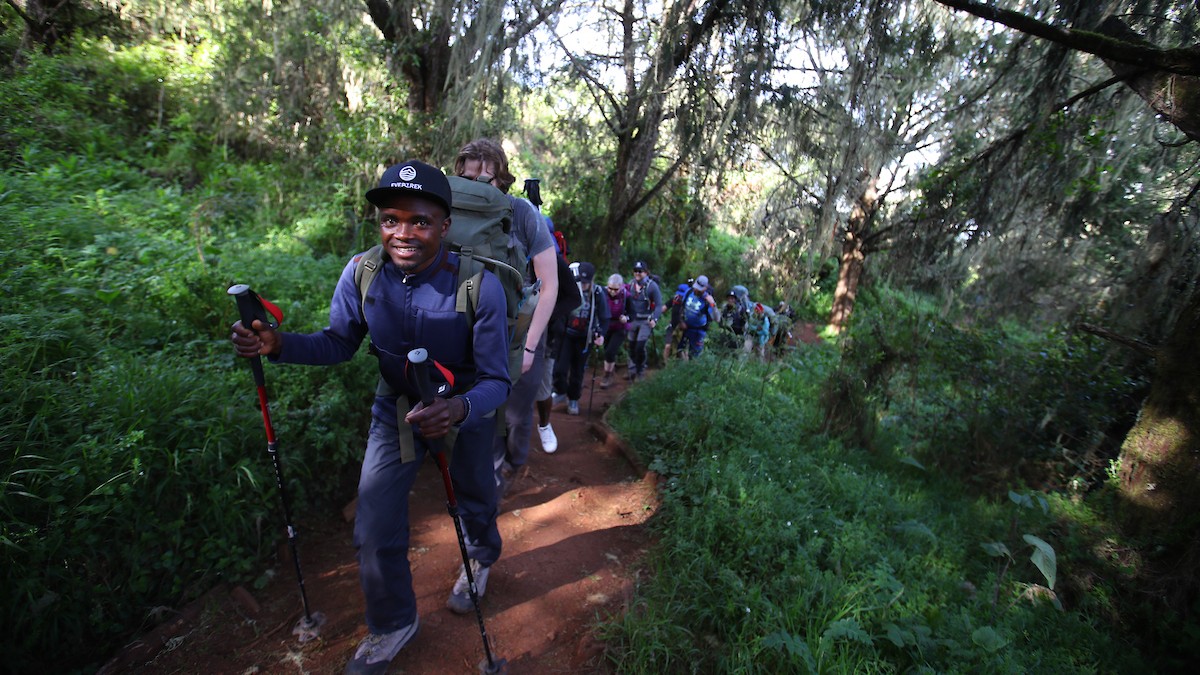
Ethics
It should be important to you that the company prioritizes ethical treatment of the humans that facilitate your bucket list adventure.
Again, the attractive price of a low-budget choice comes into question here, because that may indicate that your guides aren’t being paid a fair wage. You need to be sure that your guides are being adequately compensated and have insurance so that if they get injured, their family won’t suffer as a result of lost wages. This can be tricky to verify, but a company that’s proud of treating its guides well is likely to advertise it, and it’s usually clear if your guides are happy.
One of the most important factors in this regard is employing local guides, which ensures that at least some of the money you spend goes into the local economy. Stay at lodgings owned by locals and eat food prepared by locals. This, of course, also buys you a major advantage on any trek, as it means you get the best expertise about the region you’re exploring.
“Local knowledge is the best thing in the world,” says Moore.
Julia Clarke is a staff writer for Advnture.com and the author of the book Restorative Yoga for Beginners. She loves to explore mountains on foot, bike, skis and belay and then recover on the the yoga mat. Julia graduated with a degree in journalism in 2004 and spent eight years working as a radio presenter in Kansas City, Vermont, Boston and New York City before discovering the joys of the Rocky Mountains. She then detoured west to Colorado and enjoyed 11 years teaching yoga in Vail before returning to her hometown of Glasgow, Scotland in 2020 to focus on family and writing.

